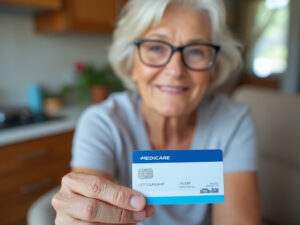When you care for a client in their homes, it is important that you do your best to keep them from getting sick and to keep yourself from getting sick too. Infection control is important for all healthcare organizations, including Easy Living. It is always our goal to follow the best practices and recommendations for good infection control protocols.
Here’s what you need to know to stay healthy and keep your clients healthy too.
Germs, bacteria, and viruses are spread from person to person. These organisms can make us sick, whether it is the common cold, tuberculosis, hepatitis, influenza, or something else. We can decrease passing germs from one person to another by understanding how the germs are spread and then adapting our habits to limit that spread.
Most germs are spread through bodily fluids like blood, urine, mucous, or respiratory droplets. These germs travel from one body to another by landing on surfaces or by being on our hands when we itch our nose or scratch our eyes. The best type of infection control practices are called universal precautions, which means we treat everyone as if they have a disease that is spread through bodily fluids. This way, we never have to question good infection control practices.
Here are good standard or universal precautions:
- Practice good hand hygiene. Wash your hands often and with soap and water when possible. Scrub for 20 seconds, which is singing the Happy Birthday song twice through. Use a paper towel to shut off the faucet and then toss the paper towel in the garbage.
- Wear gloves. Wash your hands before and after you put your gloves on. Make sure you are taking off gloves correctly. (Haley to demonstrate on camera)
- Wear other Personal Protective Equipment, or PPE, as noted on the care plan. This can include masks or gowns.
- Practice good respiratory hygiene. This means covering your cough or sneeze with a tissue when possible. Then, throw that tissue away immediately. Then, wash your hands. You’ll encourage your clients to do the same.
- Practice safe sharps disposal when applicable to your client. Never toss sharps, like needles or lancets, in the garbage.
- Dispose of soiled items properly. For garbage, like incontinence products, throw them into a double-bagged garbage. Throw away your gloves too. Tie off the garbage bags and carry them to the garbage can, typically located in the garage another designated spot.
If you have any questions about infection control practices in your client’s home, be sure to consult the care plan for more specific information. If you still are not clear, call our office. We are here to help!






